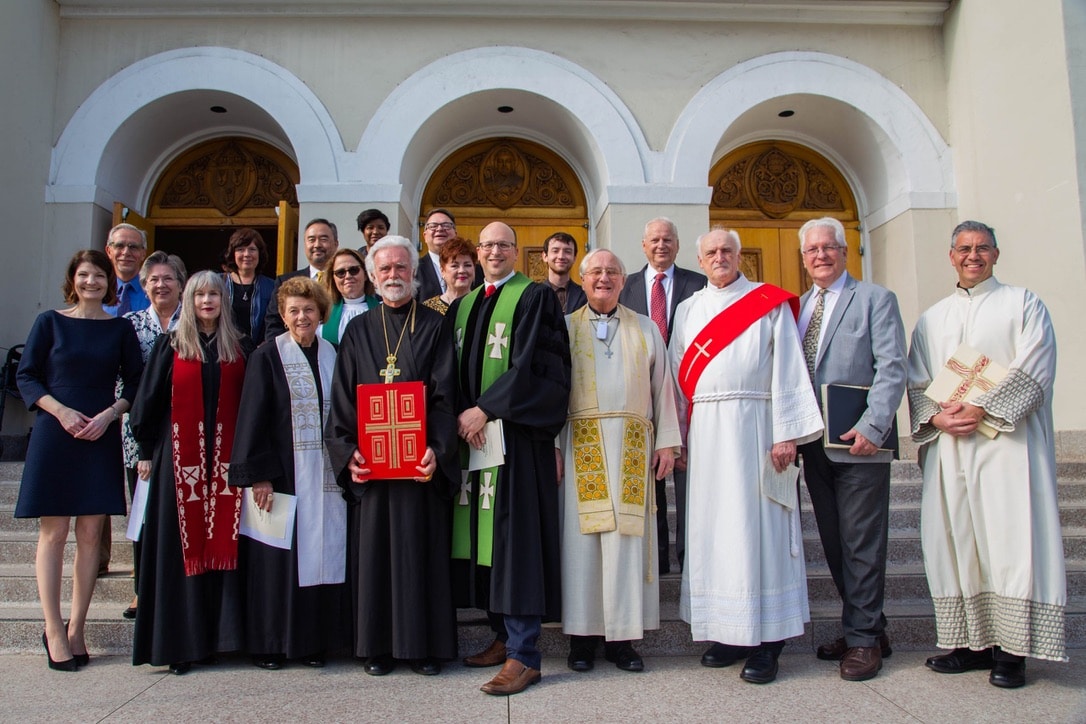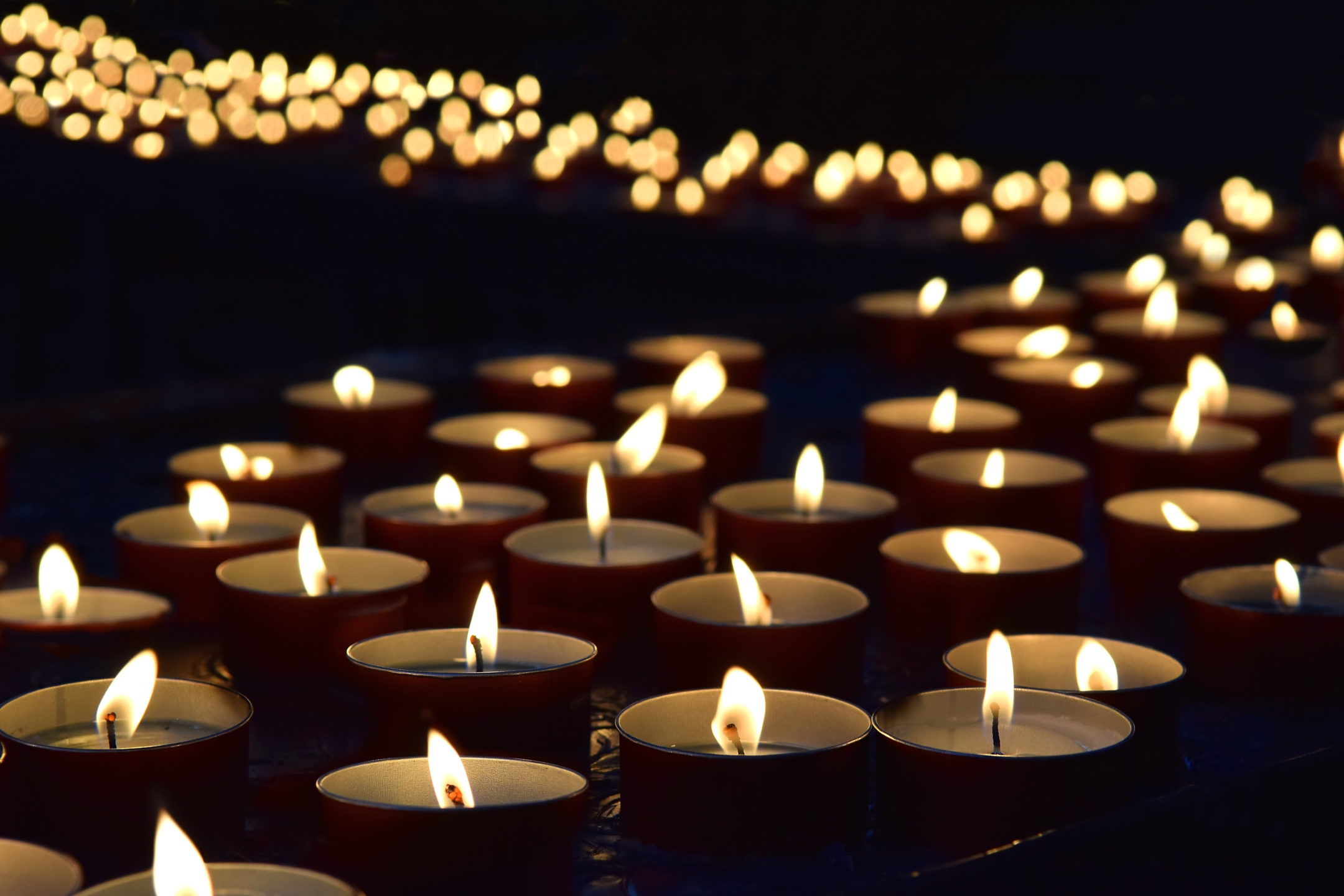“Thus it is absolutely clear that ecumenism, the movement promoting Christian unity, is not just some sort of “appendix” which is added to the Church’s traditional activity. Rather, ecumenism is an organic part of her life and work, and consequently must pervade all that she is and does.”
– Ut Unum Sint, 20 – 1995 Encyclical by Saint Pope John Paul II
The above quote from Saint Pope John Paul II’s encyclical On Commitment to Ecumenism (Ut Unum Sint) makes clear the importance of the pursuit of Christian unity to the Catholic Church. But, why is that? And, how did we get here?
The excerpts below from the book “Christian Unity – How You Can Make a Difference” by Paulist Father Thomas Ryan, show clearly why Christian unity is an essential part of the Church’s mission and why the Catholic Church has irreversibly committed itself to pursue this unity in diversity:
And now I am no longer in the world, but they are in the world, and I am coming to you. Holy Father, protect them in your name that you have given me, so that they may be one, as we are one…. I ask you to protect them from the evil one…. I ask not only on behalf of these, but also on behalf of those who will believe in me through their word, that they may all be one. As you, Father, are in me and I am in you, may they also be in us, so that the world may believe that you have sent me. The glory that you have given me I have given them, so that they may be one, as we are one. (John 17:11, 15, 20-22).
Four times in this one prayer, Jesus prays that those who follow him and those who come to believe in him through their witness may live in unity with one another. Furthermore, he prays for our protection from “the evil one”, the devil, a name that in Greek (diabolos) means “one who divides.” The work of the diabolical one is to bring division, to divide people from God as well as from one another. The evil one seeks especially to bring division to those who have been gifted with the trinitarian unity shared by God through Jesus and in the Holy Spirit.
Given the timing and the framework in which that message comes to us, there is no dodging its centrality in Jesus’ priorities for his followers. The values at the heart of Jesus’ own living and prayer set the agenda for the mission of the church today. (Page 3)
The theme of Jesus’ Last Supper prayer for the unity of his followers is picked up by his closest circle and expressed in a variety of images. Paul’s Letters to the Corinthians, Romans, and Ephesians bear some sterling examples:
Now I appeal to you, brothers and sisters, by the name of our Lord Jesus Christ, that all of you be in agreement and that there be no divisions among you, but that you be united in the same mind and the same purpose. (1 Cor 1:10)
For just as the body is one and has many members, and all the members of the body, though many, are one body, so it is with Christ…. Now you are the body of Christ and individually members of it. (1 Cor 12:12, 27)
For as in one body we have many members, and not all the members have the same function, so we, who are many, are one body in Christ, and individually we are members one of another. (Rom 12:4-5) (Page 4)
The church is in mission through what it is, not just through what it says and does. The division among Christians – our failure to live out the common life in Christ we believe the Lord calls us to – is something the church as a whole is called to overcome. In some sense, we believe that we make up the one Body, but we cannot now live a common life. A divided church, not just a church with distinct traditions or distinct organizations, but a church that cannot celebrate one Eucharist, or hold a universal council to settle a pressing question, is a church living in self-contradiction. Seeking to overcome that self-contradiction is a necessary task for the credibility of the gospel we teach and seek to share with others.
Thus did the bishops gathered from around the world at the Second Vatican Council say, “The restoration of unity among all Christians is one of the principal concerns of the Second Vatican Council…. Certainly, such division openly contradicts the will of Christ, scandalizes the world, and damages that most holy cause, the preaching of the gospel to every creature” (Decree on Ecumenism 1).
The credibility of the gospel depends upon the unity of the church by which the life-in-communion of the triune God is to be exhibited to the world. In other words, the unity of the church is a necessary condition for holding the gospel true. (Page 7 & 8)
The ultimate purpose of Christian unity is mission-oriented: “so that the world may believe that you have sent me.” Visible unity is a critical dimension of our witness. When, as a result of our divisions, we are not yet united at the Lords’ Table and not yet able to bring prophetic witness together in the face of injustice, our witness is compromised and drained of its compelling power. (Page 9)
The Catholic Church’s Directory for the Application of Principles and Norms on Ecumenism puts it strongly:
No Christian should be satisfied with these present forms of partial communion. They do not correspond to the will of Christ, and weaken his church in the exercise of its mission. The grace of God has impelled members of many churches and ecclesial communities, especially in the course of this present century, to strive to overcome the divisions inherited from the past and to build anew a communion of love by prayer, by repentance and by asking pardon of each other for sins of disunity past and present, by meeting in practical forms of cooperation and in theological dialogue. These are the aims and activities of what has come to be called the ecumenical movement. (no. 19)
The understanding of the nature of the church that is coming into broad acceptance through the ecumenical dialogues is that the church is called to be a Communion of communions. Thus, full visible unity among all the baptized – so that the churches may truly become a sign of that full communion in the one, holy, catholic, and apostolic church of Jesus Christ – is not a take-it-or-leave-it proposition. Every Christian is called upon to be an active agent of unity with other members of the Body of Christ. In its Decree on Ecumenism, the Second Vatican Council declared that “concern for restoring unity pertains to the whole Church, faithful and clergy alike. It extends to everyone, according to the potential of each” (no. 4).
If any church member still felt inclined to relate to the church’s mission for unity with indifference or an attitude of leaving it up to the other, Saint Pope John Paul II removed the wiggle room when in his encyclical On Commitment to Ecumenism, he said “the way of ecumenism is the way of the Church” (no. 7), and then went on to underline that statement further with these words: “Thus it is absolutely clear that ecumenism, the movement promoting Christian unity, is not just some sort of appendix which is added to the Church’s traditional activity. Rather, ecumenism is an organic part of her life and work, and consequently must pervade all that she is and does” (no. 20). (Page 10)
The overarching characteristic of trinitarian life is unity in diversity. As the Directory for the Application of Principles and Norms on Ecumenism observes:
The unity of the Church is realized in the midst of a rich diversity. This diversity is a dimension of its catholicity. At times the very richness of this diversity can engender tensions within the communion. Yet, despite such tension, the Spirit continues to work in the Church, calling Christians in their diversity to ever deeper unity. (no. 16)
This unity by no means requires the sacrifices of the rich diversity of spirituality, discipline, liturgical rites and elaboration of revealed truth that has grown up among Christians in the measure that this diversity remains faithful to the apostolic tradition. (no. 20) (Page 29)
In short, we have a positive commitment to diversity grounded in a fundamental unity, affirmed and celebrated as a rainbow gift of the Creator. The Christian scriptures see legitimate variety as a gift of the Holy Spirit, something to be received with gratitude and joy and to be cherished.
Diverse groups and denominations are called to strive side by side with one mind, to live out their unity in faith synergistically. So the task of the churches is to give complementary and therefore unified witness to their faith in the gospel of Christ. We are urged to unity in faith and life, theology and morality, doctrine and ethics, evangelism and justice. (Page 34)
Above excerpts are taken from “Christian Unity – How You Can Make a Difference”, Thomas Ryan, CSP, Paulist Press, 2015 – Used with permission


